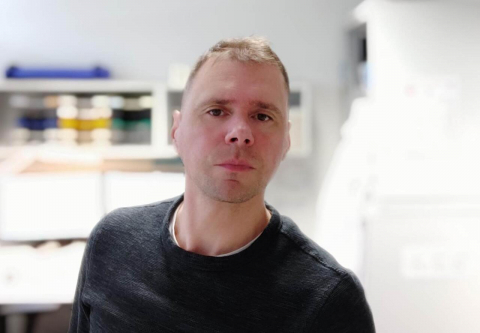NEDAMSS is a newly described, ultra-rare disease caused by mutations in the IRF2BPL gene. It is characterized by regression, seizures, autism and developmental delays. Disorders associated with IRF2BPL gene mutations are progressive, and symptoms worsen over time. Patients at some point in their lives begin to lose the ability to walk, talk and eat. They require assisted feeding as well as connection to a ventilator. The disease is being diagnosed with increasing frequency.
- The disease manifestations are associated with a broad spectrum of mutations in the IRF2BPL gene. The protein produced by this gene is found in many organs, including the brain. It is not clear how the protein produced by IRF2BPL works in the body and why mutations in this gene cause such severe neurodevelopmental disorders, says Pawel Lisowski, MD, PhD. - It is speculated that IRF2BPL may be involved in regulating the expression and function of other genes because it contains polyglutamine (polyQ) and polyalanine (polyA) strings in its structure. Such peptides are regulators of the transcriptome and their mutations play a pathogenic role in various forms of neurodegenerative diseases, such as Huntington's disease, Parkinson's disease and Alzheimer's disease. Previous studies show that IRF2BPL mutations resulting in a truncated protein, compared to other types of mutations, lead to increased symptoms, he adds.
Paweł Lisowski, MD, PhD, together with colleagues from the U.S., has begun intensive research into the IRF2BPL gene-related disease syndrome. Under the agreement, U.S. research units will send cells taken from patients' blood to MUW. Here, Pawel Lisowski, MD, PhD, will be reprogramming them into stem cells and differentiating them into neurons and disease-specific and patient-specific brain organoids. Our scientist is developing tools to somatically edit the IRF2BPL gene, both in stem cells and in patients' postmitotic neurons toward somatic gene therapies.
At the same time, Pawel Lisowski, MD, PhD, conducts a research on determining the set of features of derived neurons and brain organoids. This is to allow the molecular function of the IRF2BPL gene to be described, both in the healthy variant and the mutant variants. The researcher is also testing whether any of the FDA-approved pharmaceuticals on the market can improve the condition of patients who have the gene mutation.
Because of the structural similarities between the IRF2BPL gene and, for example, the HTT gene that causes Huntington's disease, which leads to irreversible changes in the brain, this research fits into the group of rare disease studies. This group includes a broader spectrum of neurodevelopmental as well as neurodegenerative disorders associated with trinucleodide repeats and causing toxic protein aggregation.
Paweł Lisowski, MD, PhD, together with Prof. Rafał Płoski, head of the Department of Medical Genetics MUW, is involved in research on rare neurodevelopmental and neurospychiatric undiagnosed diseases, including human stem cell biology and the development of human genome engineering methods, including somatic gene therapies.
For more information about the research conducted by Paweł Lisowski, PhD, and the NEDAMSS disease, as well as about the methods and procedures of cell donation, please visit the website of the founded by the scientist initiative IRF2BPL.DE https://irf2bpl.de/, www.functionalgenomics.pl or by contacting him directly (pawel.lisowski@wum.edu.pl, pawel.lisowski@mdc-berlin.de, pawel.lisowski@med.uni-duesseldorf.de).
Fot.: MDC Berlin
